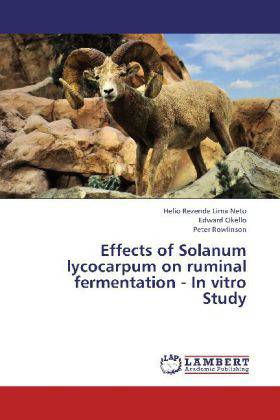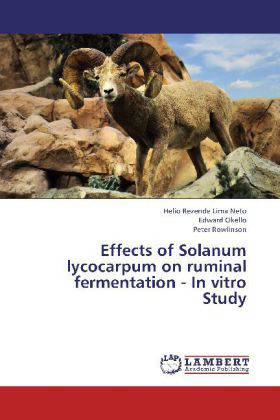
- Afhalen na 1 uur in een winkel met voorraad
- Gratis thuislevering in België vanaf € 30
- Ruim aanbod met 7 miljoen producten
- Afhalen na 1 uur in een winkel met voorraad
- Gratis thuislevering in België vanaf € 30
- Ruim aanbod met 7 miljoen producten
Zoeken
Effects of Solanum lycocarpum on ruminal fermentation - In vitro Study
Helio Rezende Lima Neto, Edward Okello, Peter Rowlinson
Paperback | Engels
€ 102,45
+ 204 punten
Omschrijving
This book is based on a PhD study conducted at Newcastle University. The introductory chapters describe how low quality forages and secondary metabolites affect ruminal fermentation, debates environmental issues related to intensive livestock production and how wild shrubs can help smallholder farmers to raise livestock more sustainably. The third chapter evaluates the chemical composition of Solanum lycocarpum in different fractions. The fourth, fifth and sixth chapters discuss experimental data on the in vitro fermentation profiles and degradability parameters of Solanum lycocarpum fractions used solely as a roughage or an additive to ruminant diets. Methane production is also evaluated in some experiments presented. This book will be especially interesting for researchers involved in sustainable animal production and ruminant research. Special thanks to Dr. Abdul Chaudhry from Newcastle University for his input in this work and to Capes (Brazilian Federal Agency for the Support of Graduate Education) for funding my PhD studies.
Specificaties
Betrokkenen
- Auteur(s):
- Uitgeverij:
Inhoud
- Aantal bladzijden:
- 300
- Taal:
- Engels
Eigenschappen
- Productcode (EAN):
- 9783838362113
- Verschijningsdatum:
- 23/02/2013
- Uitvoering:
- Paperback
- Afmetingen:
- 150 mm x 220 mm
- Gewicht:
- 440 g

Alleen bij Standaard Boekhandel
+ 204 punten op je klantenkaart van Standaard Boekhandel
Beoordelingen
We publiceren alleen reviews die voldoen aan de voorwaarden voor reviews. Bekijk onze voorwaarden voor reviews.








